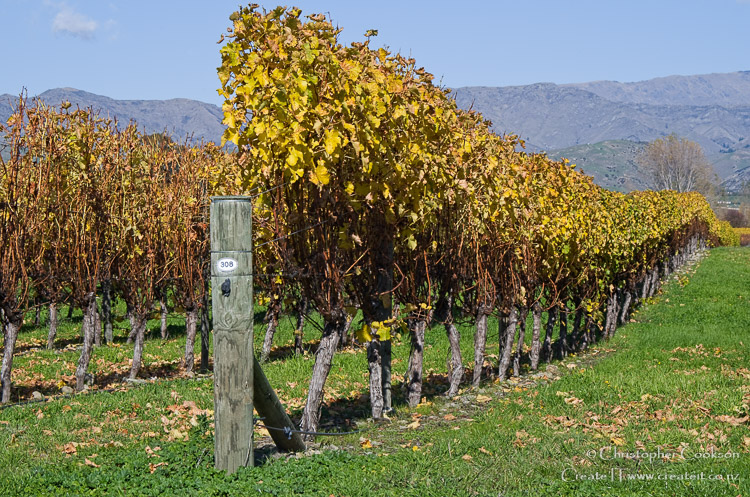Wine Industry
Last Modified: 20-2-2019 16:47

© Christopher Cookson License this image
Traditionally, Marlborough was a region for pastoral farming, but in 1973 Montana planted the first commercial vineyards in the region. From there, the industry gradually expanded until the discovery of the unique characteristics of Marlborough sauvignon blanc. Marlborough and Sauvignon Blanc have become almost synonymous. Other varieties are also planted including Chardonnay, Pinot Noir, Pinot Gris, Merlot and Reisling.
The mild climate and long sunshine hours proved to be ideal, and from small beginnings the wine industry has flourished, with the region boasting thousands of hectares of vineyards and dozens of wineries, providing a major source of employment for the region. In addition to wine-making itself, and associated industries such as engineering and bottling facilities, wine tourism has become an important part of the Marlborough economy.
A number of wineries have provided attractive landscaped areas and facilities for visitors. In addition to wine tasting, and cellar door sales, many offer restaurants and events venues suitable for weddings or conferences. Many of these venues also offer opportunities for local artists to exhibit their works.
Although viticulture has made many positive contributions to Marlborough, there have also been some controversial consequences of the industry.
The demand for land for vineyards has pushed property values up causing many traditional pastoral farms to convert to vineyards or sell. High land values have in turn driven high property tax (rates) which have often made traditional farming uneconomic. Results of this trend can be seen in the closure of the PPCS freezing works at Riverlands which subsequently converted to an industrial park, and in 2005 the closing of the last apple pack house and abattoir in the region. The influx of workers both from around NZ and overseas has driven up the cost of housing, primarily in Blenheim. Many local residents have been able to cash in on the labour boom by providing rental accommodation visitors to the region.
Some locals express concern about a vineyard monoculture, and at the health risks associated with the various agricultural sprays used in vineyards.
The demand for labour from the wine industry put pressure on contractors to find enough staff. Staffing shortages and fierce competition amongst contractors resulted in a significant number of illegal migrants being employed in the vineyards. Unscrupulous contractors hired illegal migrants and often payed them at well below legal rates, providing substandard accommodation, knowing that many of these workers speak little or no English and would be afraid to go to authorities for fear of being deported.
In response to this, the government introduced the RSE (Recognised Seasonal Employer) scheme, whereby employers are required to register in order to be able to employ migrant labour, and are required to provide minimum standards of accommodation and offer pastoral care for their staff. the RSE scheme allows approved employers to employ the same foreign workers season after season, however workers are required to return home at the end of each season. Prior to the introduction of the RSE scheme workers came from a wide variety of nationalities, however under RSE, most workers come from various Pacific nations, with a large number of workers from Vanuatu.
Web Links
Cite this page
Wine Industry. (2019) Retrieved April, 19, 2024, from https://www.marlboroughonline.co.nz/marlborough/information/business-economy/viticulture